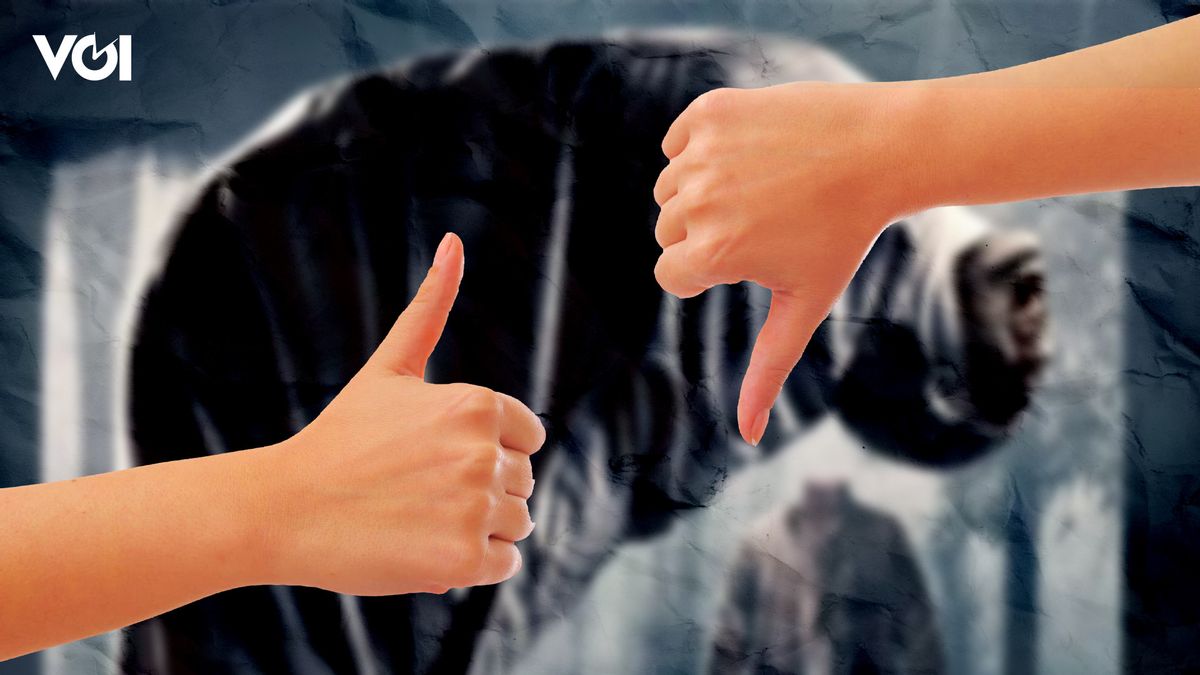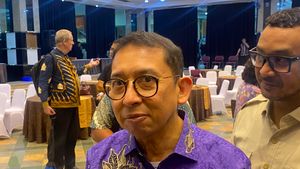JAKARTA - After releasing posters and trailers, many netizens on X also expressed objections to horror films that have religious elements, such as the film Kiblat.
This restlessness is because there is a bad stigma towards the image of religion that can be born after the screening of the film. In fact, MUI considers the film Kiblat as a black campaign against religious teachings. Qibla films are also considered not in accordance with ethical principles. Some people think of the film; considered religious defamation, 'One of the things that is an indication of this concern is from the showing of posters and trailers for the film 'Kiblat', where there is a picture of someone collapsing his face towards the top. The title 'Kiblat' is also considered problematic and some people also judge exploitation of religion.
However, from a number of public objections. They rely more on the issue of posters and film titles, not on film content. The content is recognized by the MUI, as a film that has Islamic religious breaths. because there is a depiction of a number of city youths struggling to restore public understanding from the loss.
"With all due respect to Indonesian film producers, please stop making horror films like Qiblat. It doesn't educate at all, it even makes some people afraid to pray, in the past the same incident happened with the sequel to the film Makmum, Khanzab," said Ustaz Hilmi Firdaus via uploads on the X @Hilmi28 account.
Gina S Noer, a filmmaker and director, also expressed her concern about the trend of Indonesian horror films with the theme of religion that has emerged recently. According to him, these films have exploited religion, especially Islam.
"Most horror films use prayer, prayer, remembrance, and others, only being plit devices is cheap for jumpscara, the characters are disturbed by demons," he said.
Gina added that exploitation of the weakness of faith is not a deep criticism of the shallow understanding of religion, but only a shallow way to create fear. He stressed that frightening scenes involving worship rituals can have a negative impact on the audience, especially because many claim to be afraid to perform prayers after watching the Kiblat film.
"Moreover, the context of the literacy level of our society. The responsibility of the filmmaker is not only to return investment but also to the impact on culture," he said.
SEE ALSO:
Hana Saraswati as one of the Kiblat film players said she did not dare to comment on the poster of the Kiblat film because it was not her authority. "I don't dare to give a response to the poster for the Kiblat film. I just assure you that the content of the film does not demean Islam at all, let alone prayer or the direction of our Qibla," said Hana Saraswati to JavaPos.com, Monday (25/3).
He further said that the film Kiblat actually tries to tell about people who lose their way in life to pawn their afterlife for life in the world.
"In my own content, in my opinion, the meaning is really good. This film tells the story of people who have lost their Qibla, people who have lost their way. That's what we want to tell from this film," he added.
Hana Saraswati has high hopes that the Kiblat film will still be shown even though currently there are rejections and the ban on this film will be shown.
"My hope is that it will continue to air. In my opinion, this film is very good personally. The story often occurs, starting from multiplying money, alternative medicine, right. We all do this film with all our heart. We hope that people don't judge before watching the content of the film," he explained.
Artist Prilly Latuconsina tries to express her opinion regarding the horror film genre which is suspected of having elements of Islam in her story. Prilly admitted that she actually did not have the capacity to discuss this matter. Not without reason, this 27-year-old woman has not watched the film in question and does not understand the mistakes being debated.
"I don't have the capacity to comment because I don't understand the process (production), I haven't watched the film either, I also don't understand where the problem is," said Prilly Latuconsina in the Cikini area, Central Jakarta, Wednesday, March 27.
As a producer at the Sinemaku Pictures production house, Prilly feels that every producer has the freedom to create a horror story.
"It's just that as far as I know every producer has the freedom to make horror stories and that's also probably fictitious, it doesn't happen in the real world. Yes, everyone has the freedom to be creative," he added.
The English, Chinese, Japanese, Arabic, and French versions are automatically generated by the AI. So there may still be inaccuracies in translating, please always see Indonesian as our main language. (system supported by DigitalSiber.id)
















